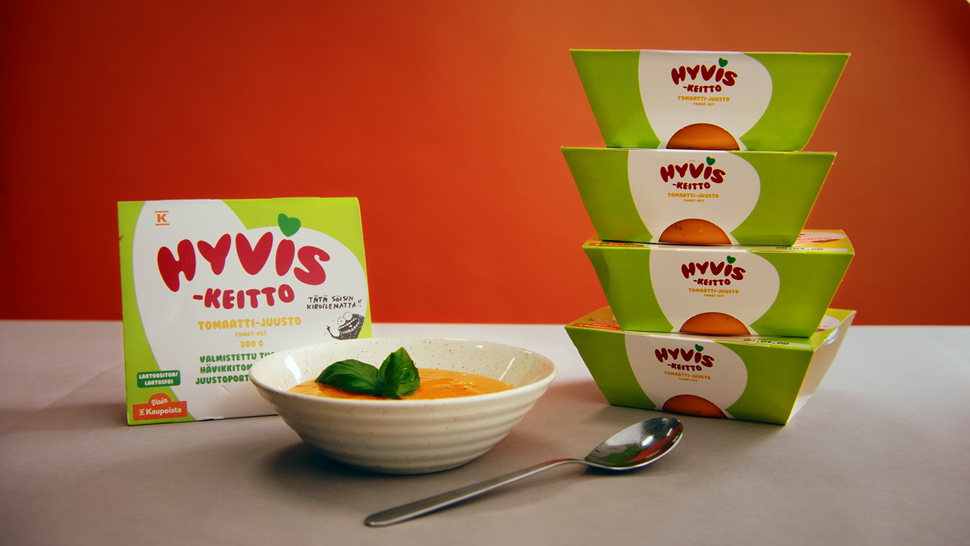
Noomi Järgerhorn (M.Soc.Sc.) has been appointed as Kesko’s Vice President of Sustainability. She will join the company on 1 May 2025, and assume her new position on 1 June 2025 at the latest.


K Group is committed to halving its food waste by 2030 from its 2019 level. To meet this goal, K Group is constantly brainstorming new solutions with suppliers.
”For example, with Juustoportti, we were considering the surplus flows that our central warehouse was left with, and how we could put these to use. In terms of sales, tomatoes are a large product group, and the constant flow of products results in a surplus. This gave rise to the idea of possibly being able to use overripe or bruised but otherwise delicious tomatoes in soup and thus avoid waste,“ explains Timo Jäske, Director, Sustainability, fors Kesko’s grocery trade division.
Some fruit and vegetables may be bruised in transit to K Group’s central warehouse, while others may not meet the required cosmetic standards. Since they are not fit for sale but are entirely edible, these products are an excellent soup ingredient, for example. Hyvis tomato and cheese soup is made by Juustoportti’s Kasvis Galleria in Kuopio.
”The soup contains about 40 per cent discarded tomatoes. The rich flavour comes from mature Isabella and Grand Reserve cheeses. The cheese in the soup is also a surplus product. Their quality is first-class, but they do not meet Juustoportti’s cosmetic standards for packaged cheese because of defects like cracks. They are excellent for soups,“ says Niklas Keski-Kasari, Juustoportti’s head of marketing.
The amount of soup that can be produced depends on the quantity of discarded tomatoes.
”The starting point with food-waste products is a little backwards, given that they are made from ingredients we wish we didn’t have. But we want to use an otherwise unavoidable food waste in a smart way,“ says Jäske.
The new product responds to customer needs, as consumers are interested in meat-free convenience foods and would like a wider selection. The Hyvis tomato and cheese soup is available only in K Group grocery stores starting in April.
Reducing food waste is part of K Group’s climate action
Reducing food waste is linked to K Group’s climate target of becoming carbon-neutral by 2025 and reducing emissions of its operations to zero by 2030. The most important methods of food waste prevention are selection management and forecast and demand planning. It is not pure chance which products end up on K-food stores’ shelves; it is the result of precise data analysis and store-specific selection management. Transport and store logistics have also been optimised to ensure that loss is kept to a minimum.
 YES
YES
 NO
NO